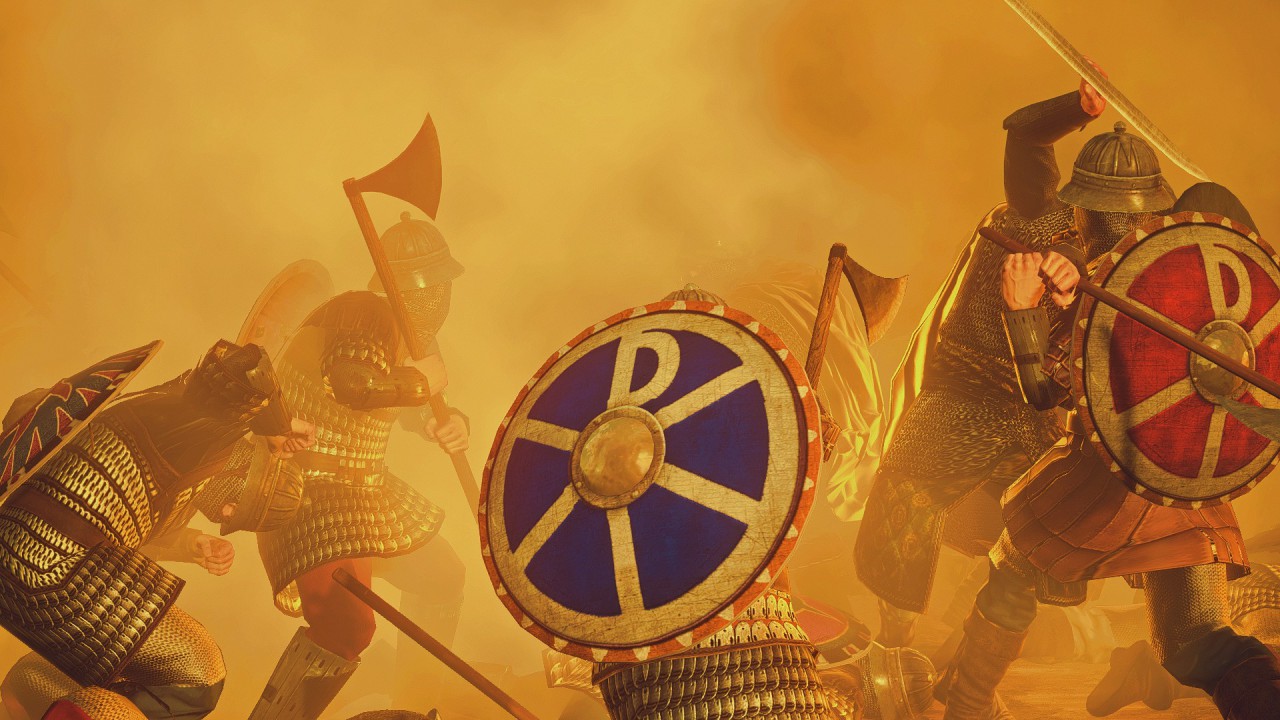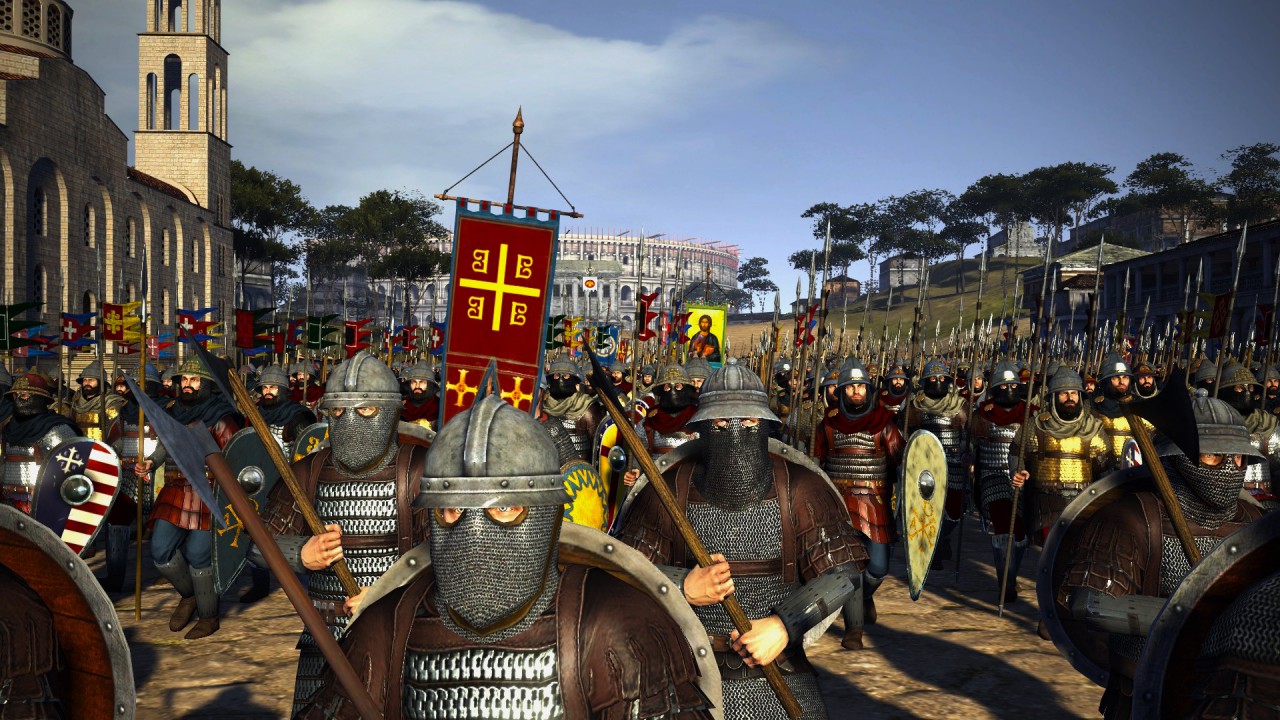1100AD Review: Exploring the Medieval World of Strategy and Intrigue
1100AD: A Comprehensive Review of the Popular Online Strategy Game
1100AD is a popular online strategy game that has captivated players worldwide. Its immersive and engaging gameplay takes players back to the medieval era, where they assume the role of a ruler striving to establish and expand their kingdom. From the moment you first login, the game's stunning graphics and user-friendly interface draw you in. The game offers a rich and diverse set of features that allow players to shape their kingdom according to their strategic choices. The attention to detail in the game's mechanics is commendable, ensuring a realistic and dynamic gaming experience.
One of the standout aspects of 1100AD is its comprehensive resource management system. To thrive in the game, players must efficiently manage their resources, such as gold, food, wood, and stone. These resources are essential for constructing buildings, training troops, and researching technologies. Balancing limited resources to meet the needs of your growing kingdom requires strategic decision-making and careful planning. The game ingeniously incorporates a market system where players can trade resources with other players, fostering a sense of community and economic interdependence.
The gameplay in 1100AD is highly interactive and encourages collaboration and competition among players. Forming alliances with other players is crucial for survival and expansion. Together, players can launch joint attacks on stronger opponents, engage in trade deals, and share knowledge and resources. The game provides various multiplayer options, including large-scale battles and sieges that keep the gameplay thrilling and intense. Collaborating with other players enhances the social aspect of 1100AD, creating a vibrant online community of like-minded individuals.
The combat mechanics in 1100AD are well-crafted and strategically challenging. Players can recruit different types of troops, including infantry, cavalry, and archers, each with their unique strengths and weaknesses. Carefully planning and positioning your troops, as well as utilizing effective tactics, are essential for victory on the battlefield. The game allows players to customize their armies by equipping them with powerful gear and training them in specialized combat skills. Engaging in PvP battles and testing your skills against other players is immensely satisfying, adding a competitive edge to the overall gameplay experience.
One aspect that sets 1100AD apart from other strategy games is its emphasis on historical accuracy. The game features a meticulously researched medieval world, with authentic units, buildings, and technologies. It provides players with a virtual journey through the medieval ages, allowing them to experience the challenges and triumphs of this era. The attention to historical detail adds an educational element to the game, making it not just an entertaining experience, but also a valuable learning tool.
Moreover, 1100AD offers a wide array of quests and missions that provide a sense of direction and purpose to players. These quests range from basic tasks, such as constructing specific buildings or training a particular number of troops, to more complex challenges like capturing enemy territories or defending your kingdom from invaders. Completing quests rewards players with valuable resources, experience points, and in-game currency, fostering a sense of progression and accomplishment.
The game also boasts a vibrant and dedicated player community, which enhances its overall experience. Interacting with other players through in-game chat, forums, and social media platforms allows for the exchange of strategies, tips, and experiences. The developers of 1100AD actively listen to player feedback and regularly release updates and expansions to improve the game and address any issues raised by the community. This commitment to player satisfaction and continuous improvement has contributed to the game's longevity and popularity over the years.
In conclusion, 1100AD is an exceptional online strategy game that combines immersive gameplay, complex resource management, engaging combat mechanics, and historical accuracy. Its comprehensive features and attention to detail make it a standout choice for strategy game enthusiasts. Whether you aspire to build a grand kingdom, engage in epic battles, or forge alliances with other players, 1100AD offers a diverse and captivating gaming experience. Embark on an adventure through the medieval ages and shape your destiny in this remarkable online strategy game.

Unveiling the Joys and Challenges of 1100AD: A Detailed Game Review
Unveiling the Joys and Challenges of 1100AD: A Detailed Game Review
1100AD is an immersive strategy game that transports players into the medieval era, allowing them to build their own cities, engage in epic battles, and forge alliances in a dynamic virtual world. This comprehensive review aims to explore the various aspects of the game, shedding light on its strengths, weaknesses, and the overall experience it provides to its players.
One of the most captivating aspects of 1100AD is its intricate city-building mechanics. Starting with a small village, players gradually expand their territory by constructing and upgrading key structures such as farms, mines, and markets. This element adds a layer of realism to the gameplay, as players must manage resources, plan their city layouts effectively, and account for the needs of their growing population. The attention to detail in the city management aspect of the game is commendable, providing players with a sense of accomplishment as they witness their cities flourish and prosper.
In addition to city-building, 1100AD offers a diverse range of military options. Players can recruit and train various types of units, such as infantry, cavalry, and archers, to form formidable armies. These armies can then be sent into battle against other players or non-player characters (NPCs), opening up endless strategic possibilities. The combat system in 1100AD is engaging and requires careful planning and coordination to achieve victory. It is both a test of military prowess and strategic thinking, providing an adrenaline rush to players as they witness the outcome of their well-executed battle plans.
Another remarkable feature of 1100AD is its diplomatic mechanics. Players have the option to form alliances with other players, creating powerful coalitions that can dominate the game world. Cooperation and communication are essential in managing these alliances, as players must negotiate treaties, support each other in times of war, and strategize together to achieve common goals. The diplomatic aspect of the game adds depth to the overall experience, as players must not only excel in city-building and combat but also master the art of negotiation and alliance management.
However, along with its joys, 1100AD also presents its fair share of challenges. One prominent challenge is the steep learning curve for new players. The game features a multitude of mechanics, options, and strategic elements that can overwhelm newcomers. Understanding the intricacies of city management, combat tactics, and diplomatic negotiations requires time and patience, making it difficult for players to fully grasp the game's nuances from the start. While it can be initially frustrating, this learning curve is also part of what makes 1100AD rewarding, as players gradually unlock its depth and complexity through experience.
Another challenge lies in the game's microtransaction system. While the core gameplay of 1100AD is available for free, there are optional in-game purchases that offer certain advantages and shortcuts to players. This can create an uneven playing field, as those who invest real money in the game may have an edge over those who do not. While this monetization model is common in many online games, it can hinder the overall balance and fairness of the gameplay. However, it is worth noting that players can still enjoy 1100AD without spending any money, albeit with additional effort and dedication required to compete with those who choose to make in-game purchases.
In conclusion, 1100AD is an immersive strategy game that offers a rich and engaging experience to players. Its detailed city-building mechanics, captivating combat system, and intricate diplomatic options make it a standout title in the genre. While it poses challenges for new players and features a microtransaction system that may impact gameplay balance, these aspects do not overshadow the overall enjoyment and depth the game provides. For those who yearn to immerse themselves in the medieval era and test their strategic abilities, 1100AD is a game worth exploring.

 100
Play
100
Play
Exploring the Realm of 1100AD: A Critique and Evaluation of the immersive Strategy Game
Exploring the Realm of 1100AD: A Critique and Evaluation of the immersive Strategy Game delves into the intricacies and captivating aspects of the game 1100AD. This strategy game offers players an opportunity to step into the shoes of a medieval ruler, tasked with building and expanding their own empire. The attention to detail in terms of historical accuracy and the immersive nature of the gameplay make it a standout amongst its counterparts.
One of the most commendable aspects of 1100AD is its focus on historical accuracy. The game portrays the medieval period with remarkable precision, allowing players to experience the challenges and triumphs faced by rulers of that era. From the visual aesthetics to the in-game events and activities, everything is designed to transport players back to the 12th century. This attention to detail provides a sense of authenticity, enhancing the overall gameplay experience.
The immersive nature of 1100AD is truly remarkable. As players assume the role of a ruler, they are responsible for managing all aspects of their empire, including resource management, military strategy, and diplomacy. The game offers a plethora of options and decisions to be made, allowing players to customize their gameplay experience. The ability to forge alliances, initiate wars, and trade with other players adds a dynamic layer of interaction. This interactivity fosters a sense of immersion and investment in the outcome of battles and negotiations.
One of the notable features of 1100AD is the development of the player's empire. The game provides numerous avenues for growth and expansion, such as constructing buildings, upgrading infrastructure, and recruiting armies. The progression system is well-structured, allowing players to gradually expand their influence and power. The sense of accomplishment and satisfaction derived from seeing one's empire flourish is a testament to the game's engaging mechanics.
The social aspect of 1100AD is another noteworthy aspect. The game encourages interaction and cooperation between players through alliances and trading. This aspect creates a sense of community as players work together to achieve common goals. Furthermore, the opportunity to engage in diplomacy and negotiate with other players adds a strategic layer to the gameplay, making it more than just a single-player experience. It fosters a sense of competitiveness and encourages players to strategize and form alliances to gain an edge over their opponents.
While 1100AD captures the essence of medieval empire-building, it is not without its flaws. One of the notable drawbacks of the game is its steep learning curve. The multitude of options and mechanics may overwhelm new players, and the lack of a comprehensive tutorial or guidance can hinder their initial experience. Additionally, the game's interface and navigation could be more user-friendly, making it easier for players to understand and navigate through the various menus and options.
Another aspect that could be improved upon is the balancing of gameplay elements. Certain strategies and playstyles may prove to be more advantageous than others, leading to an imbalance in competition. This can be frustrating for players who find themselves at a disadvantage due to the dominance of a particular strategy or tactic. A more comprehensive balancing system that ensures fairness between different playstyles would greatly enhance the overall experience.
In conclusion, Exploring the Realm of 1100AD: A Critique and Evaluation of the immersive Strategy Game highlights the strengths and weaknesses of the game 1100AD. Its historical accuracy, immersive gameplay, and social aspects make it an engaging and captivating experience for players who enjoy strategy games. However, the steep learning curve and lack of balance in gameplay elements detract from its overall potential. With improvements in these areas, 1100AD has the potential to become a leading strategy game in the genre.


